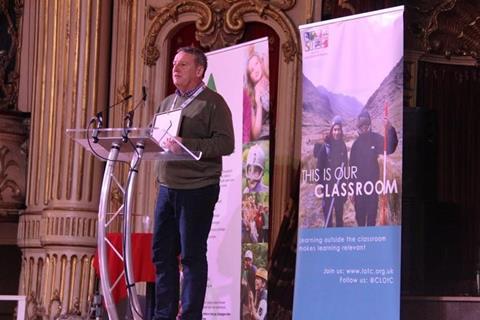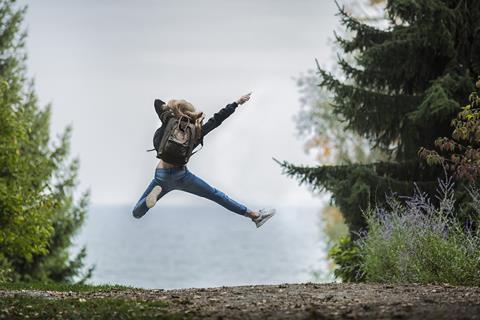Steve Dool is chair of the Council for Learning Outside the Classroom (CLOtC) and is one of the speakers at the ABTA School Travel Seminar in London on 10th March.
Steve, could you start by telling us what the key reasons are for taking a school trip?
The important consideration is that any visit fits with your curriculum aims and threads into the intent you have for students and what you want their outcomes to be. The decision should also come within the context of having a coordinated programme of visits at your school to bring learning alive away from the classroom. Finally, it should also help pupils develop.

If you could give a check-list to help teachers plan their visits, what would it include?
Top of the list is safety, affordability and relevance to the learning programmes and the intended learning outcomes. Accessibility is key, I strongly believe that learning away and educational visits need to be accessible to as wide a range of students as possible.
How should teachers decide where to go and who with?
I’m sure schools approach it in different ways, but I’d encourage all of them to have a long-term approach and think about the type of experiences they want to provide. In terms of accessing those experiences, I would always emphasise that there would be different levels of experience. You can’t match a sports tour to South Africa exactly, but you can offer other experiences, locally and nationally. When teachers have a good idea of those experiences and how they might provide them, then clearly there’s a range of operators and companies which can support them.
It’s about looking at the literature and forming relationships with the providers who you feel you can trust. I’d also encourage teachers to go, if they can, to inspect destinations themselves beforehand, where possible this is very valuable to have an insight and an understanding about what students will be doing and what they’ll face first-hand.
Steve’s tips for what teachers should be looking for in their provider
There are three checks that I would encourage teachers to look at in the first instance (and all of equal importance):
1. That they have the Council for Learning Outside the Classroom (CLOtC) Quality Badge which indicates a certain standard which has been met.
2. That they are members of the School Travel Forum.
3. That they are ABTA members.
These three things will give you the initial security that is important in organising any educational visit. From there you can start forming relationships with providers that appear to have met all those standards and start asking questions about what support you can have and what communications you can expect and what advice and guidance you can expect when on the course.
Is there anything that you think tour operators can do more of to support schools and teachers?
Many tour operators have an excellent range of tools to help teachers in preparing a visit, so I’d say look for those companies that provide the toolkit to make it easier. Any teacher organising a course or visit needs to treat it as an individual experience. The risk assessment and experience needs to be bespoke.
Your group is unique. Your kids are unique. Your school is unique. You need to approach it in that way.
What advice would you give to teachers about convincing senior leadership to agree to the school trip or visit?
There’s a strong commitment to learning away from the classroom in many schools and for those teachers it’s a lot easier to convince and win support for the pupils. In other organisations, where that culture isn’t perhaps as strong, I’d advise teachers to sell it by impressing upon the senior leadership; how the outcomes for students can be met, what the benefits of that particular experience are.

If they do it by linking it to the curriculum intent and to the school, then perhaps the senior leaders will take note and support it. There are many schools and examples where schools have that culture from day one.
Another key area is demonstrating what the impact of the experience is on the students in terms of their resilience, confidence, their ability to communicate and build relationships. For somebody that’s been involved in educational visits for 34 years, I’ve shared many special moments with students. I’ll be sharing more of these memories at the conference as well as evidence of the impact on students.
Steve will be speaking at ABTA’s School Travel Seminar which takes place on 10th March (9.30am - 4.45pm) at Kennedys, 25 Fenchurch Ave in London.
School Travel Organiser is the official media partner for the event which is aimed at travel providers and those looking to break into the market.
Register by clicking here.















